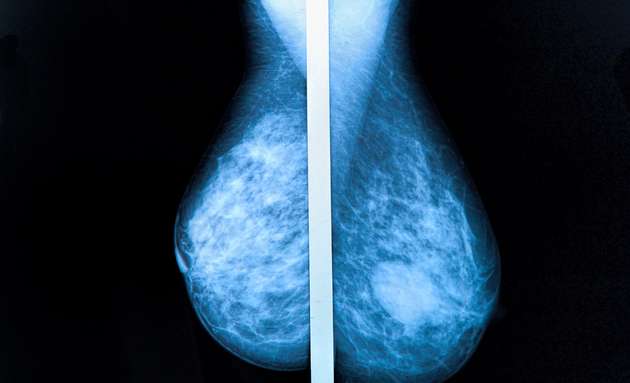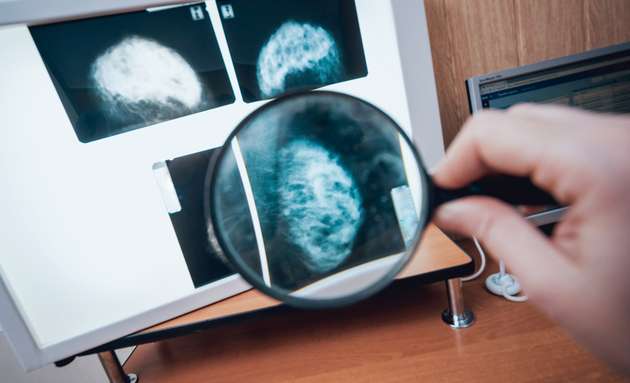What Women Should Know About Breast Density and Cancer

Urban cities in India like New Delhi, Mumbai, Ahmedabad, Kolkata, and Trivandrum have seen a rise in the cases of breast cancer over the last decade. Lifestyle factors like weight gain, lack of exercise, excessive alcohol consumption, hormone replacement therapies, stress, and erratic work timings have largely contributed to this.
However, other non-modifiable factors like genetics, age, gender, and dense breast tissues have also contributed to this increasing number.
But what does it mean to have dense breast tissues? Why does it increase your risk of breast cancer? Can you do anything about it? Here’s everything you need to know about breast density and its implication for breast cancer in women.
What Does it Mean to Have Dense Breasts?

Breast tissues are made up of milk glands and ducts, supportive tissues (dense breast tissue) and fatty tissue (non-dense breast tissue). Dense breast tissues appear as a solid white area on a mammogram, obscuring any hidden lumps. This makes it difficult for doctors to identify any potential breast cancer threats. 4 out of 5 women who screen for breast cancer are unaware that dense breasts can increase their risk of breast cancer.
“Women with dense breasts are 5 times more likely to develop breast cancer than women with less dense breasts.”
It is imperative for all radiologists to inform and educate their patients about breast density and what it may mean for their health.
What Causes Dense Breasts?

Breast density is usually dependent on your natural body composition. It is also affected by age and hormones. If you are undergoing hormone replacement therapy, it can increase your breast density as well. More often than not, one cannot do much to alter their breast density.
Why Does Breast Density Matter?
Dense breasts can obscure the detection of any lumps or malformations in your breasts in a mammogram. This increases the chance of any potential breast cancer threat to go undetected.
What Are the Screening Options for Women With Dense Breasts?

Breast density cannot be diagnosed by touch.
“A woman’s breast may feel soft but appear dense on the mammogram,” - Renee Pinsky, M.D., associate professor, University of Michigan.
3D Mammography, also known as Tomosynthesis, is by far the best way to screen for breast cancer in women with dense breasts. During a 3D Mammography, the breasts are observed in visual slices, helping remove some of the obscure, masking effects of dense breast tissue. 3D Mammography machines can help radiologists to get deeper insights and make early detection easier and more accurate.
Breast density is categorised into four levels :
- Almost entirely fatty
- Scattered fibroglandular densities
- Heterogeneously dense
- Extremely dense
Women who have dense breasts or think they might have dense breasts should discuss with their doctor on other screening methods like an ultrasound, which can pick up other cancers that may not be detected in a mammogram. But it is to be noted that Ultrasound may also have a higher false positive rate.
Some other screening methods for breast density include Breast MRI, and Molecular Breast Imaging (MBI). Consult your doctor on what screening method is best for you.
Furthermore, it is important to understand and discuss breast cancer risk factors with your doctor to remain compliant with the growing need for breast cancer screening.
Takeaway
The concept of breast density is an important factor in determining breast cancer risks. Here are some key factors you should keep in mind:
- Breast density cannot be diagnosed by touch, you need to consult your doctor for specific screening methods.
- Dense breasts can make it difficult to detect any signs of breast cancer in a mammogram.
- Breast density may change with age and conditions like pregnancy, lactation, and menopause.
- Dense breasts require additional screenings like Ultrasound and Breast MRI.
It is important we talk more about breast density and address this issue head-on. So #ScreenItOut and have the best chance of early cancer detection.






